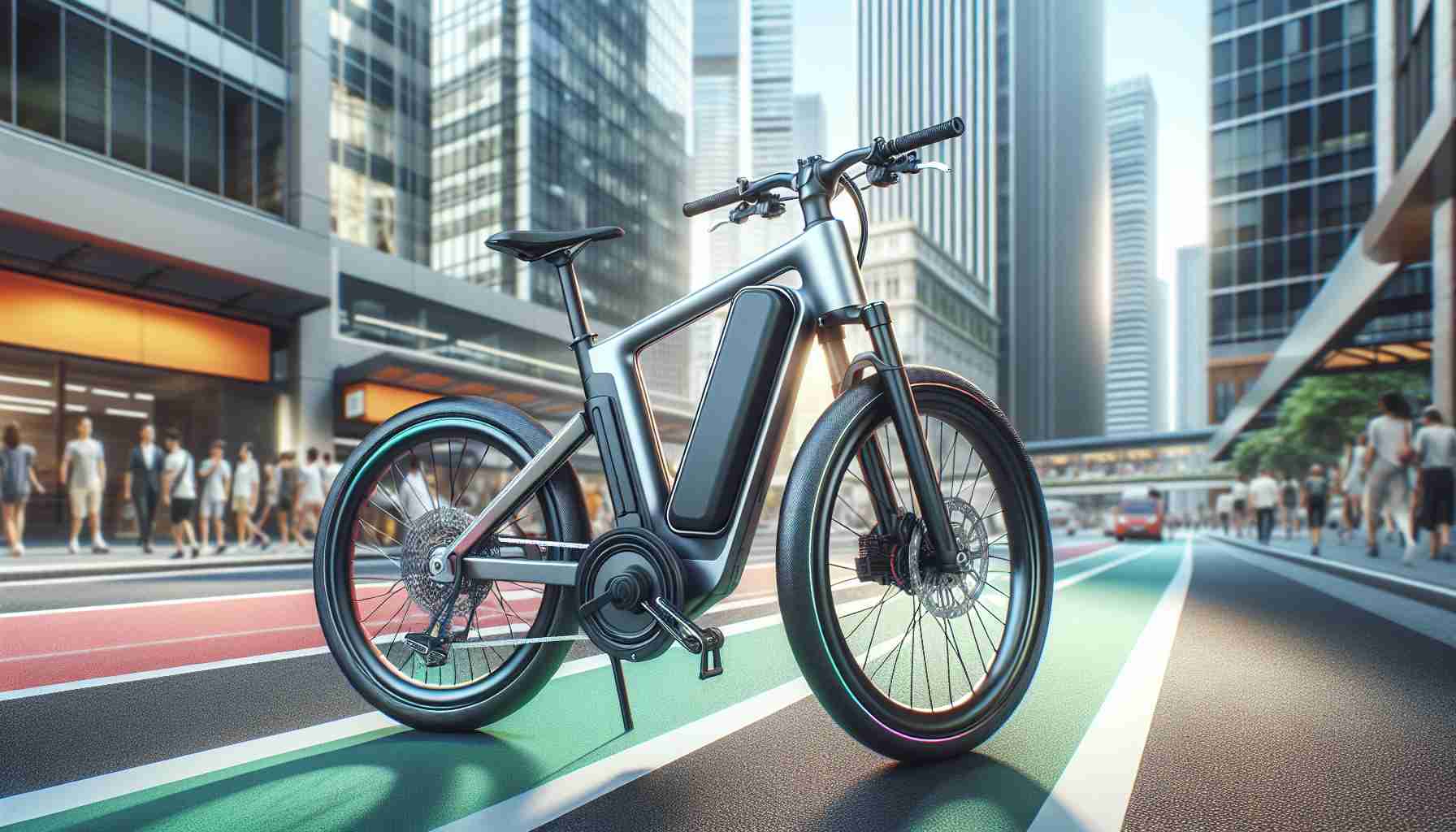The landscape of urban commuting is undergoing a significant transformation, and Vvolt is at the forefront with the launch of the Centauri II—an innovative e-bike designed specifically for modern city dwellers. This latest model stands out for its exceptional blend of comfort, performance, and lightweight design, catering to the needs of daily commuters seeking an enhanced riding experience.
Weighing in at only 50 lbs, the Centauri II manages to be both durable and feature-rich without compromising maneuverability. One of its standout features is the North American debut of a mechanical automatic 3-speed internal rear hub transmission, which adapts to the rider’s speed without the need for a battery. This ensures a seamless transition between gears, making for effortless navigation through busy urban environments.
Equipped with the Ananda powertrain, riders can select from five levels of power assistance, hitting speeds of up to 28 mph. For those looking to enjoy a more leisurely pace, a special “Chill Mode” limits speeds to 12 mph, ideal for recreational cruising.
The bike’s cutting-edge design also includes an integrated lighting system for improved visibility day or night, complemented by a robust hydraulic braking system for reliable safety. Available in striking colors and various sizes, the Centauri II is accessible for riders of diverse heights.
With a competitive price of $2,999 and shipping anticipated by mid-September 2024, the Centauri II is set to redefine urban commuting as we know it.
The urban commuting landscape is rapidly evolving, largely due to a growing shift towards sustainable and efficient transportation alternatives. Vvolt’s introduction of the Centauri II e-bike represents not only an innovation in bike design but also reflects broader industry trends that are reshaping how people navigate cities.
Industry Overview
The electric bicycle (e-bike) industry has been witnessing explosive growth, fueled by increasing concerns over traffic congestion, environmental sustainability, and health benefits associated with cycling. The global e-bike market is projected to grow significantly, with estimates suggesting it could reach upwards of $38 billion by 2025, according to market research reports. This growth is driven by urban populations seeking eco-friendly transportation options that reduce carbon footprints while enhancing mobility.
In addition to the environmental benefits, e-bikes have gained popularity as a viable alternative to traditional cars or public transport, particularly in densely populated urban areas where commuting times can be lengthy. Innovations like those seen in the Centauri II, such as automatic gearing and advanced powertrains, are raising the bar for performance and comfort in this rapidly expanding market.
Market Forecasts
Looking ahead, the demand for e-bikes is expected to continue its upward trajectory. With advancements in technology, including battery life and motor efficiency, along with increasing urbanization, e-bikes are becoming a mainstream choice for many commuters. Market analysts predict a compound annual growth rate (CAGR) of over 15% for the e-bike sector through the next few years. This optimism is further supported by various government initiatives promoting electric vehicle usage, including e-bikes, which are often incentivized through subsidies and tax benefits.
Industry Challenges
Despite the promising outlook, several challenges remain within the e-bike industry. Manufacturing costs are currently a concern, as high-quality components like those in the Centauri II can lead to elevated retail prices, potentially limiting market reach to more affluent consumers. Additionally, the industry faces ongoing competition from other forms of transportation, such as conventional bicycles and ride-sharing services.
Another issue is the need for improved infrastructure to support e-bike usage. Many cities still lack adequate bike lanes and safety measures, which can deter individuals from making the switch from cars to e-bikes. Addressing these infrastructural deficiencies will be vital in capitalizing on the growing interest in e-bikes and ensuring their safe integration into urban transport systems.
Conclusion
Vvolt’s Centauri II exemplifies the future of urban commuting, intricately designed to meet the demands of modern city life while promoting sustainable practices. As the e-bike market continues to evolve, companies like Vvolt will be pivotal in driving innovation and addressing the challenges of urban mobility. For more information on the e-bike industry and emerging trends, consider visiting some relevant resources like icebike.org and electricbike.com. These platforms provide insights into the latest developments and technologies in the realm of electric mobility.







